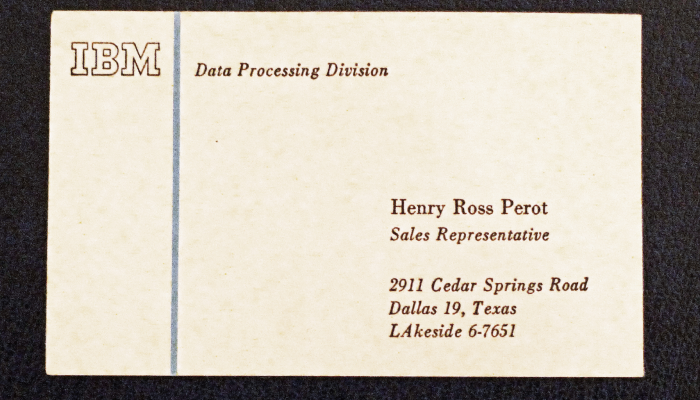
Ralph Lauren, born Ralph Lifshitz on October 14, 1939, in the Bronx, is a name synonymous with luxury and classic American style. His journey from a retail salesman at Brooks Brothers to the founder of a global fashion empire is an inspiring tale for salespeople everywhere.
Early Life
Lauren's early life was marked by modesty and ambition. Raised in a working-class family of Jewish immigrants, his father was an artist and house painter. Facing bullying due to his surname, Ralph, along with his brother, legally changed their last name to Lauren when he was 16. After high school, he attended Baruch College but dropped out after two years, opting for hands-on experience over a traditional education.
Beginnings as a Salesman
Following his service in the U.S. Army from 1962 to 1964, Lauren took a job as a sales assistant at Brooks Brothers. This position was more than just a job, it was a formative experience that would shape his understanding of the fashion industry. His role at Brooks Brothers introduced him to the world of high-quality menswear and the importance of customer relationships.
He would continue as a tie salesman taking a role at Rivetz, a necktie company, which helped him better understand the necktie market. By the age of 28, Lauren was selling for Beau Brummell, another tie manufacturer. Here, he made a bold move that would set the course for his future. He convinced the company's president to let him create his own line of neckwear. With this opportunity, Lauren launched his first business venture, The Ralph Lauren Corporation, in 1967, starting with men's ties.
His Most Important Deals
Lauren's ties were unique and embodied a broader, more flamboyant style than was typical at the time. He got his big break when he convinced a buyer at Neiman Marcus to place an order for 1,200 ties. Working out of a single drawer in a showroom in the Empire State Building, Lauren personally delivered his ties to the store, a testament to his dedication and hands-on approach.
In 1968, drawing on his love for sports, Lauren introduced his first full line of menswear under the brand name "Polo." This line marked the beginning of the iconic Polo Ralph Lauren brand. Lauren wanted to incorporate sports into his brand; he later said that he chose polo rather than basketball or baseball (two sports he loved) as it conveyed the luxury and sophistication he strove for in his company’s branding.
In 1969, he negotiated an exclusive agreement with Bloomingdale’s which included his own in-store boutique, the first time the department store gave a designer their own exclusive space — a concept that went on to become popular in department stores across the country.
Taking Over American Fashion
Lauren's success continued to snowball. In 1971, he launched a line of women's tailored shirts, which featured the now-famous Polo player emblem. This was followed by a full women's collection and the opening of his first store on Rodeo Drive in Beverly Hills. His innovative approach to branding and retail set new standards in the fashion industry.
By 1972, the introduction of the signature Polo shirt solidified Ralph Lauren as a household name. The shirt, available in various colors and featuring the iconic logo, became a symbol of preppy style and elegance. His designs didn't just appeal to fashion enthusiasts but resonated with a broader audience (as it still does today), capturing the essence of the American lifestyle.
Legacy
Lauren's journey from a salesman to the head of a multibillion-dollar fashion empire is a remarkable example of vision, perseverance, and strategic thinking. His ability to identify market needs, coupled with his unwavering commitment to quality and style, can serve as an inspiration for salespeople everywhere. Lauren's story underscores the importance of believing in one's vision, taking bold steps, and maintaining a personal touch in all business dealings.
For salespeople, Ralph Lauren's career can be a powerful reminder that success often starts with humble beginnings and that with passion and persistence, one can turn even the smallest opportunities into monumental achievements.







